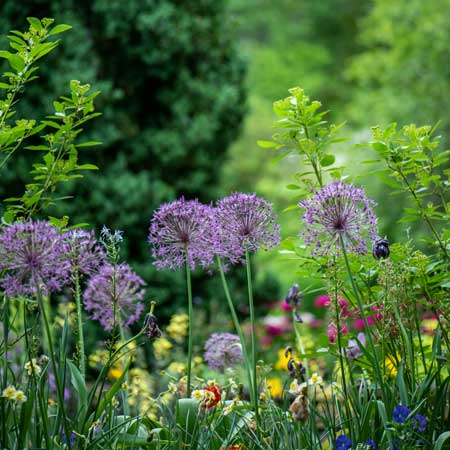
The issue of stress among the youth is constantly on the rise in the world of education. With such deadlines and exams, and the expectation of being able to perform, students can become very burdened with their academic responsibilities. This ongoing hardship has the potential to impair their mental and physical well-being, subsequently, causing anxiety, burnout, and depression. Although students are usually advised to get rid of stress by means such as exercise, meditation, or counseling, one more option is natural settings, which in this respect, are utilizing gardens as therapeutic environments. In this article, we look at the ways gardens can serve as a natural treatment for student stress and as one of the mechanisms of the overall well-being of the pupils.
Suppose you are a student who is writing essays or submitting assignments to say you are in the face of adversity. Do you think using an essay-writing service would work for you? Such services allow students to be paired with expert writers who will not only teach them how to write an impressive essay but do the actual writing for them thus ensuring the quality of their assignments. Through such services, students are easing stress about deadlines and making more time for themselves, which is either by taking a walk in a garden or just spending some time alone while taking deep breaths. More information about how to access such services can be found here, where students can find a reliable online essay writing service.
The Science Behind Nature’s Healing Power
Humans for a long time now, have felt a compelling attraction to nature due to its soothing effect. The biophilia theory, the innate human predisposition towards nature, supposes that staying close to nature enhances our psychological well-being. Several studies have confirmed that being in natural environments is a powerful stress-reducer by not only lowering high levels of blood pressure, heart rate, and cortisol, the stress hormone but also by other means. Moreover, other research has shown that spending time in nature and the observation of green spaces may be closely related to moods and cognitive skills, which are essential for learners who have to be active and motivated throughout their educational process.
Gardens, whether filled with flowers, grass, and trees or not, are hands down the most beautiful places. They are wonderful places to connect with nature in a peaceful and relaxed environment, which is far away from schoolwork. For sure, taking a tranquil one-hour lie-down in a garden in school or walking peacefully in the park not too far away are some of the ways that nature reserves help to take us away from ordinary life pressures.
How Gardens Benefit Students?
1. Reduction of Stress and Relaxation
Gardens create a peaceful setting in which students can relax. The mere fact of being around plants has been proven to minimize stress and anxiety. For students, stepping away from books and spending time outdoors in a garden can be a way of relaxation. The chirping of birds, the movement of leaves, and the breeze can all contribute to a calming atmosphere that allows for mental focus and serenity.
2. Cognitive Benefits
Nature, particularly gardens, has been found to enhance mental function. According to a study conducted by University of Michigan researchers, students who spent time in nature experienced better attention and memory, which can be beneficial especially when faced with academic pressure. The calmness and serenity of a garden enable students to reboot their minds, recharge, and go back to work with more concentration and productivity.
3. Fostering Social Interaction
The gardens can be additional spaces in the student community to let students communicate with one another. Alongside their greenery, they can be the place to be for group activities, such as outdoor study groups, social events, or even casual chats. Moreover, social interactions are treated as a mental health enhancer, not just a casual chat for the majority of teens who wish to exchange experiences and obtain emotional solace during feverish times. This is also their chance to push themselves out of the loneliness students face.
Conclusion
Let us talk about recreational gardens as a therapy for student stress. – Creating spaces for personal time, where students can relax as well as broaden their relationships with others, gardens aid in the stabilization of student health and reduction of anxiety. Teaching learners green solutions through the facilitation of online education websites is a major component of a stress management plan that makes both the mind and the soul excel. Young people should benefit from the healing strength of nature and the internet to guide them through life which will culminate in better academic performance and emotional satisfaction.






